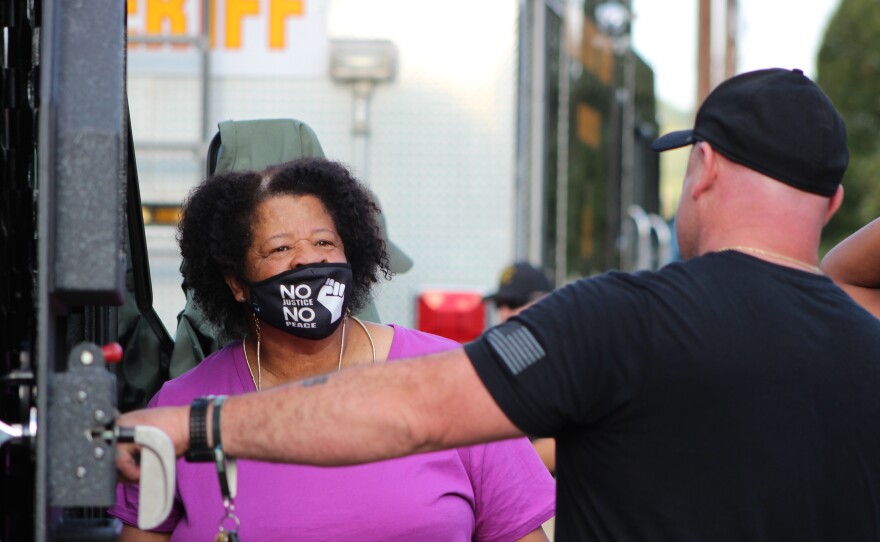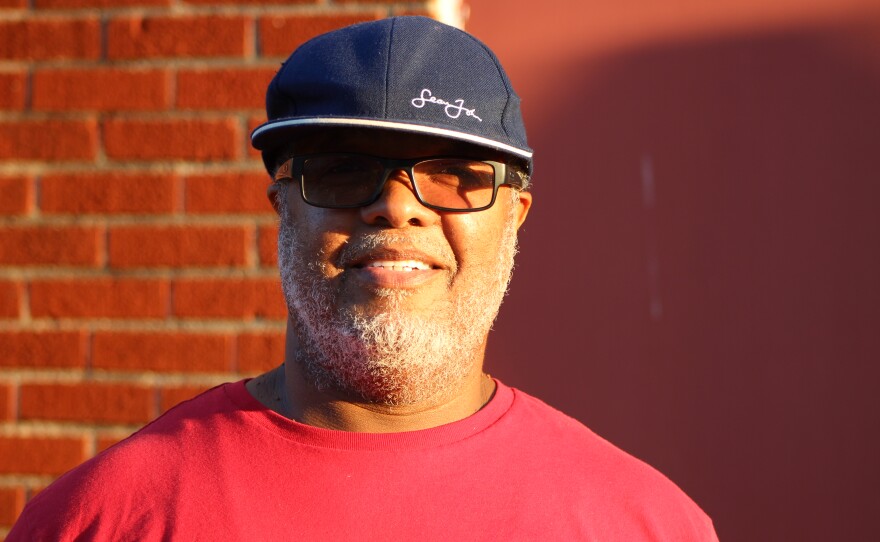The latest community in our storytelling initiative Round the Corner is Lincoln Heights, the first African American self-governing community north of the Mason-Dixon line.
This small Hamilton County village is focusing on improving police-community relationships, without even having a police department of its own.
On a surprisingly cool August night, the people of Lincoln Heights are out in force — singing, dancing, eating ice cream and climbing in and out of police vehicles. It's National Night Out, a day for police, fire and EMS to mingle with neighbors and answer questions.
There's a lot of support for the officers patrolling the streets, even though their badges don't say "Lincoln Heights." Village Council disbanded the police department in 2014 after its insurance company walked away. Now, the village contracts with the Hamilton County Sheriff's Department.
Mayor Ruby Kinsey-Mumphrey says they're thrilled with the relationship.
"We're here to improve the village of Lincoln Heights," she said. "And we definitely are trying to improve the community policing part for our residents, and for the village to change the narrative — become a positive community where people want to move here."
Sheriff's deputies have been policing here for seven years, with a contract of about $790,000 annually. When village leaders said they wanted a stronger connection between law enforcement and the community, the Sheriff's Department pursued a federal Community Oriented Policing grant for $1.25 million.
The grant pays for 10 additional deputies in the village nearly 24-hours a day. And just like the beat officers permanently assigned here, it's the same faces each day – no rotating crew of strangers to the neighborhood.
Sheriff Charmaine McGuffey says the last several months have been successful.
"We've just been really coming over not just in uniform, but in our real clothes and with our real selves, and continuing to communicate daily," McGuffey said. "And also letting Lincoln Heights know, whatever you're doing, we're on board, and we will find ways to fund it."
Captain Tory Smith oversees the officers and supervisors working here. He says the community-oriented policing strategy is part of an overall fight against complacency.
"We don't want to stay where we used to be in terms of the traditional policing style: just answering calls for service, just responding to things as they happen - or after they happen, rather," Smith said. "We want to get out and talk to people. And it's not about just gathering information on the bad actors or something like that. We want to help prevent crime; help address crime before it happens."
Residents have noticed the difference. Shevonna Polk's family has been in Lincoln Heights for six generations. Even though she moved away a few years ago, she brings her kids back every chance she gets. She says National Night Out shows how far her hometown has come.
"Oh, my goodness - compared to how it was before, unfortunately, to now? A definite big change, very positive change," Polk said. "They're very much so here for the support of the community. They're here to kind of embrace them as a family and I love it. It does take a village to raise a child, but also takes a village to raise community. And when you have events like this, and you see that family atmosphere, you see that, 'Hey, we are still family, we still here, you can still reach out and we'll be here for you.' "
Kelvin Satterwhite has lived in Lincoln Heights all his life — nearly six decades. He's heard every negative complaint over the years.
"The Sheriff here is just showing the people it's not a bad place," Satterwhite said. "It's a place that you can come have a family, be able to raise your family here, and don't have to worry about what's going on out there. We want to try to help change that stigma."











